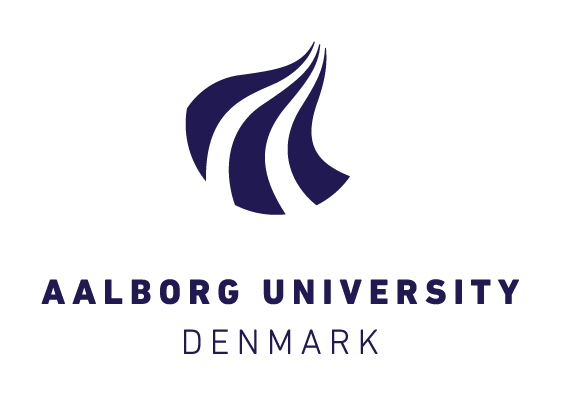29th Nordic Congress of
Plenary speakers
Kathryn Hess
EPFL Lausanne, CH, chaired by Lisbeth Fajstrup (Aalborg)
Kathryn Hess received her PhD from MIT in 1989 and held positions at the universities of Stockholm, Nice, and Toronto before moving to the EPFL, where she is currently full professor of mathematics and life sciences. In 2016 she was elected to Swiss Academy of Engineering Sciences and was named a fellow of the American Mathematical Society and a distinguished speaker of the European Mathematical Society in 2017. In 2021 she gave an invited Public Lecture at the European Congress of Mathematicians. She has won several teaching prizes at EPFL.
Kathryn’s research focuses on algebraic topology and its applications, primarily in the life sciences, but also in materials science. In her work in applied topology, she has elaborated methods based on topological data analysis for high-throughput screening of nanoporous crystalline materials, classification and synthesis of neuron morphologies, and classification of neuronal network dynamics. She has also developed and applied innovative topological approaches to network theory, leading to a parameter-free mathematical framework relating the activity of a network of neurons to its underlying structure, both locally and globally.
Nina Holden
Courant Institute, New York University, chaired by Gianluca Panati (Rome)
Nina Holden is Norwegian and took her bachelor and master’s degrees in mathematics at the University of Oslo. After a few years outside academia, she took a PhD in mathematics at the Massachusetts Institute of Technology. Her PhD was under the supervision of Scott Sheffield and was completed in 2018. She was then a postdoc at ETH Zurich, and since fall 2022 she has been an Associate Professor at the Courant Institute at New York University.
Nina Holden works in probability theory and mathematical physics. She is particularly interested in two-dimensional random geometry and conformally invariant random objects. Two objects that play an important role in her research are the random fractal curves known as Schramm-Loewner evolutions and the random surfaces known as Liouville quantum gravity surfaces. These objects arise in a wide variety of settings, particularly in branches of physics such as statistical mechanics and conformal field theory, and they are characterized by natural symmetries which make them particularly canonical.
Daniel Král
Masaryk University, Brno, CZ, chaired by Lars Døvling Andersen (Aalborg)
Daniel Král’ obtained his PhD in Computer Science from Charles University in Prague in 2004 and held postdoctoral positions at TU Berlin and Georgia Institute of Technology before he returned to Charles University. In 2012, he became a professor of Mathematics and Computer Science at the University of Warwick where he was also affiliated with the interdisciplinary research centre DIMAP. Since October 2018, Dan is the inaugural holder of the Donald Ervin Knuth professorship at Masaryk University in Brno, which the university has created with the permission of Donald Knuth. He is also an honorary professor of Mathematics and Computer Science at the University of Warwick. Dan’s research work has been recognized by several prizes, including the 2011 European Prize in Combinatorics, and supported by various grants, including two ERC grants. He became a Fellow of the American Mathematical Society in its 2020 Class of Fellows. Dan is a supporter of diamond open access and is one of the founding editors of the diamond OA journal Advances in Combinatorics.
Dan’s research addresses topics in discrete mathematics, theoretical computer science and their interface. These include problems concerning structural and extremal graph theory, graph algorithms and graph limits, a new area of mathematics which provides analytic tools to study large graphs. Such analytic methods have led to new ways to deal with notoriously difficult extremal combinatorics questions and established new links between analysis, combinatorics, ergodic theory, group theory and probability theory. The theory of graph limits is indeed very closely linked to extremal combinatorics, a subject of Dan’s talk: questions from extremal graph theory can be cast as optimization problems over the graph limit space with optimal solutions corresponding to its extremal points. As formalized in several conjectures by Lovász, it was believed that a special structure of these extremal points could result in novel methods for difficult problems from extremal combinatorics. Unfortunately, such hopes were completely dismissed by Dan and his collaborators, primarily his students and postdocs. In his talk, Dan will discuss analytic view on problems from Ramsey’s theory, a classical area of extremal combinatorics, which guarantees the existence of well-behaved substructures in sufficiently large structures.
Finnur Lárusson
U of Adelaide, AU, chaired by Arne Jensen (Aalborg)
Finnur Lárusson did his undergraduate work at the University of Iceland and obtained his PhD from the University of Chicago. Following postdocs at the University of Michigan and Purdue University, he spent ten years at the University of Western Ontario in Canada. He is now professor at the University of Adelaide in Australia.
Finnur works in complex analytic geometry, more specifically on Oka theory and its interactions with other areas of mathematics, such as contact geometry, dynamical systems, homotopy theory, and geometric invariant theory. Oka theory is concerned with a strong interplay between complex analysis and homotopy theory in various geometric settings. It has established itself as a subfield in its own right over the past 15 years or so. Finnur gave a series of lectures on Oka theory at the Chinese Academy of Sciences in Beijing in 2014 and at the International Centre for Theoretical Physics in Trieste in 2015. In 2016 he was a research fellow at the Centre for Advanced Study in Oslo.
Jonatan Lenells
KTH Stockholm, chaired by Jana Björn (Linköping)
Jonatan is a professor in the Department of Mathematics at the KTH Royal Institute of Technology in Stockholm. After completing his Ph.D. in Mathematics at Lund University in Sweden in 2006, he served as a Visiting Assistant Professor at the University of California, Santa Barbara (2006-2007) and as a Marie Curie Research Fellow at the University of Cambridge, UK (2007-2009). Before joining the KTH faculty in 2014, he spent one year (2009-2010) at the Gottfried Wilhelm Leibniz University in Germany, and four years (2010-2014) on the mathematics department faculty at Baylor University, USA. Awards Jonatan has received include the James S.W. Wong JMAA Prize, the Wallenberg Prize, Göran Gustafsson’s prize for young researchers, and three Teacher of the Year awards at KTH. He has been the principal investigator of several grants, including an ERC Consolidator Grant (2016-2022).
Jonatan’s research focuses on partial differential equations and their applications to problems in mathematical physics. Other research areas include statistical mechanics and quantum field theory.
Eveliina Peltola
Aalto University, FI/ University of Bonn, DE, chaired by Daniel Valesin (Warwick)
Eveliina Peltola graduated in 2016 from the Department of Mathematics at Helsinki University with a thesis in Mathematical Physics, combining quantum groups and quantum field theory with random geometry. From 2016 to 2019, she worked as a postdoc at the University of Geneva in the group of Stanislav Smirnov. In 2021, she was appointed as a Bonn Junior Fellow professor at the Institute of Applied Mathematics at the University of Bonn. Since 2021, she combines this position with an assistant professorship at the Department of Mathematics and Systems Analysis at Aalto University. Eveliina recently received an ERC starting grant; moreover, she leads research groups that are supported by the Academy of Finland, resp. by the German Research Foundation.
Eveliina works at the crossroads of Mathematics and Physics, combining algebraic, geometric, and probabilistic methods to tackle questions related to conformal field theory, random geometry, and scaling limits. This involves, amongst others, conformal field theory, correlation functions, crossing probabilities, diagram algebras, Gaussian free field, integrable models, representation theory, Schramm-Loewner evolutions (SLE), quantum groups, and vertex operator algebras. She is particularly interested in understanding algebraic and geometric structures underlying critical random models and CFT.
Daniel Peralta-Salas
(EMS Distinguished Speaker)
ICMAT, Madrid, chaired by Simon Kristensen (Aarhus)
Daniel Peralta-Salas (Madrid, 1978) is a senior scientific researcher at the Institute of Mathematical Sciences (ICMAT) in Madrid (Spain). Since 2017 he is the Chair of the Group “Differential Geometry and Geometric Mechanics”. He got a PhD in Mathematical Physics at Complutense University (Madrid, Spain) in 2006, and after postdoctoral positions he joined the ICMAT in 2010. He has published about 90 research articles in high profile journals, such as Annals of Mathematics, Acta Mathematica, or Duke Mathematical Journal, and has been an invited speaker in more than 100 international conferences, seminars, and courses. Among his main distinctions we highlight the Plenary Lecture at the European Congress of Mathematics in 2016 (Berlin, Germany), the Barcelona Dynamical Systems Prize (2015) and the Floer Lectures at the Floer Center of Geometry in 2019 (Bochum, Germany). During the period 2014-2019 he was the PI of the Starting Grant from the European Research Council (ERC) “Invariant manifolds in Dynamical Systems and PDE”.
The research lines of Peralta-Salas concern the connections and interplay between dynamical systems, partial differential equations and differential geometry. This includes different topics in fluid mechanics, spectral theory, conservative dynamics, and geometric analysis. In hydrodynamics and conservative dynamics, he is interested in understanding the Lagrangian complexity of fluid flows and magnetic fields from the topological, dynamical, and computational viewpoints. In spectral theory and geometric analysis, he has worked in the study of nodal sets and critical points of eigenfunctions and Green’s functions. His major contributions in these areas include a proof of the centennial Lord Kelvin conjecture on the existence of steady knotted vortex tubes in the Euler equations, a solution to a problem of Berry on knotted nodal lines of eigenfunctions and the answer to Moore’s speculation on the construction of fluid flows that can simulate a universal Turing machine.
Nathalie Wahl
University of Copenhagen, DK, chaired by Markus Szymik (Sheffield)
Nathalie Wahl obtained her PhD from Oxford in 2001, and has held postdoctoral positions at Northwestern, Aarhus, and the University of Chicago, before moving to Copenhagen where she is now a professor as well as centre leader for the Centre for Geometry and Topology.
Nathalie Wahl’s research area lies at the crossroad of algebraic topology, geometric topology and homotopy theory, with interests including loop spaces, field theories, homological stability, mapping class groups and higher structures.







